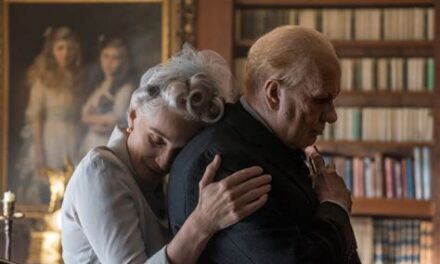When I recently was asked to critique a student play—nicely performed, by the way—I left satisfied enough. The action took place in the fifties in Alaska and dramatized the meeting of a young couple who by the end of the play appeared headed for a life together. To be sure, it was not Shakespeare or Wilde, but it was decently written and believable, until, that is, one of the characters lamented that she needed to be “fulfilled.” I smelled an anachronism and said as much in the Q&A session that followed the performance.
As many can testify, the omnipresent wish to be “fulfilled” was not something one heard much of before 1970. But by 1980 and beyond, the word or some form of it was so prevalent that Tom Wolfe spoke of the seventies as the ‘Me’ decade and sociologists began cranking out tomes about the ‘Me Generation.’
The film Billy Liar, produced in Britain in 1963, was a little before Tom Wolfe’s time, but it addressed the self-centered urge to fulfill one’s deepest desires as beautifully as any movie I know, albeit with a mildly bittersweet flavor.
The film was hardly a success when it appeared in the United States. Released on the day President Kennedy was assassinated, it came and went without a whimper. That’s a shame, but videos and DVDs have rectified the problem. Anyone can watch or own it with very little trouble—and one owes it to himself to make the effort.
William “Billy” Fisher, the hero of the story, lives in a Walter Mitty-esque daydream world in which, almost at the drop of a hat, he manages to transfer himself into his own make-believe country of Ambrosia where he is, for lack of a better phrase, resident hero. It almost goes without saying that in the real world, the one outside his elaborate daydreams, he is a shiftless bum, lazy as they come, and, as the title suggests, prone to fibbing—or trying to fib—his way out of corners he creates for himself. Like so many potential dependents of the British welfare state, he shows up for work late, appears to do nothing once there, and sneers with his fellow employees at his aging, more responsible bosses.
When he is given calendars to distribute to advertise the business (a funeral parlor, as it happens), he fails to deliver a single one, and he uses a money order he’s given for on his own ephemeral pleasures.
All of that is recent backstory. The film really begins during the opening credits with a vision of modern Britain: row after row of dingy apartment houses in a style that made Poet Laureate John Betjeman weep. The theme of sixties dreariness does not disappear; the film is punctuated with images of stately old buildings being demolished to make way for the new.
Amid the wreckage Billy (Tom Courtenay) is introduced, recumbent and daydreaming of a victorious parade in the aftermath of an Ambrosian war; he reviews the spectacle although his face is also that of every heroic soldier that marches by the stand. But the real hero of his dreams is Billy himself: half-general, half-dictator flanked by a modestly fashionable wife (Julie Christie) who waves laconically to the parade.
It’s all delightfully ridiculous, but such daydreams—and there are many in Billy Liar—tend to make Billy not only late but careless. Throughout the movie, he dodges the inevitable comeuppance for his irresponsible actions. If those actions were related to work only, his state would be bad enough, but it’s worse, much worse than that. He’s engaged to two women. How that happened is never clear, but one suspects Billy in a romantic moment simply couldn’t help popping the question without reflecting on what it meant—and then did the same thing a second time. And in the few times, we see him with one of his fiancés when he meets someone he knows, he does everything he can to conceal the fact that he’s engaged.
The whole business is almost prophetic of today. Where Billy works (sort of) somewhere, today’s young men work nowhere; where Billy gets engaged twice, today’s young men get engaged never. Modern dinginess may have given way to the newer surface glitz, but the lack of virtue remains the same. ‘Me’ has become everything.
An odd thing about Billy Liar is that Billy really isn’t quite everything, not even to himself. In spite of his habit of disappearing into a world of dreams, Billy’s Ambrosia suggests he wants something he can’t quite find in post-war Britain. In simple terms, he wants a life of heroism, of fighting them on the beaches, of building a Britain grander (one that would make John Betjeman smile) than the uninspiring brick boxes he sees rising from the rubble. His “We shall build towers!” speech to a cheering crowd of Ambrosians is a telling daydream. Billy would build, heal, and lead with a benevolent, inspired hand. Neither of Great Britain’s two Harolds, MacMillan nor Wilson, could quite see their way to that vision. In his dreams, Billy does, with his lady by his side.
And she’s some lady, Billy’s real love, Liz. She’s not only in the dreams; she’s in real life, and the funny thing is, she loves Billy. She’s had it with whatever city they’re in, perhaps in the Midlands or the north, and is headed for London. She knows all about Ambrosia and will happily share in Billy’s dreams, even so far as keeping a special room in their house or flat where they can go anytime they like and be in their dream world. By the way, she’s beautiful. (Julie Christie in 1963: What else would she be?). All Billy has to do is chuck his job, leave his father and mother—both healthy in late middle age—and catch the night train.
It’s all set to work just that way, a dream come true, when Billy is confronted by his mother at the station. His grandmother, who has lived with the family, has just died, and the family needs help. As his mother sternly and sadly tells Billy, he’s got to stay and face the various messes he’s single-handedly created. After she leaves, Billy jumps on the train with Liz, but nervously insists on getting milk from a machine to go with their sandwiches. Her warnings notwithstanding, Billy runs for the milk, only to see Liz and the train leave before he has time to return. Was he too weak to face freedom?
Funny how times never change. Most involved in the film felt Billy had missed his chance, which is the same reaction I got from many of my graduate film class students. Not to me. The Billy who marches back to his home, comically leading an imaginary troop of Ambrosian soldiers, has not lost at all. In that dream, which is no dream at all, he goes back to help his family and slowly pay the funeral home management what he owes. It’s as if to say heroism can live amid modern squalor and still be eccentrically grand. And a “loss” of that kind for ‘Me,’ is a victory for all of us.














